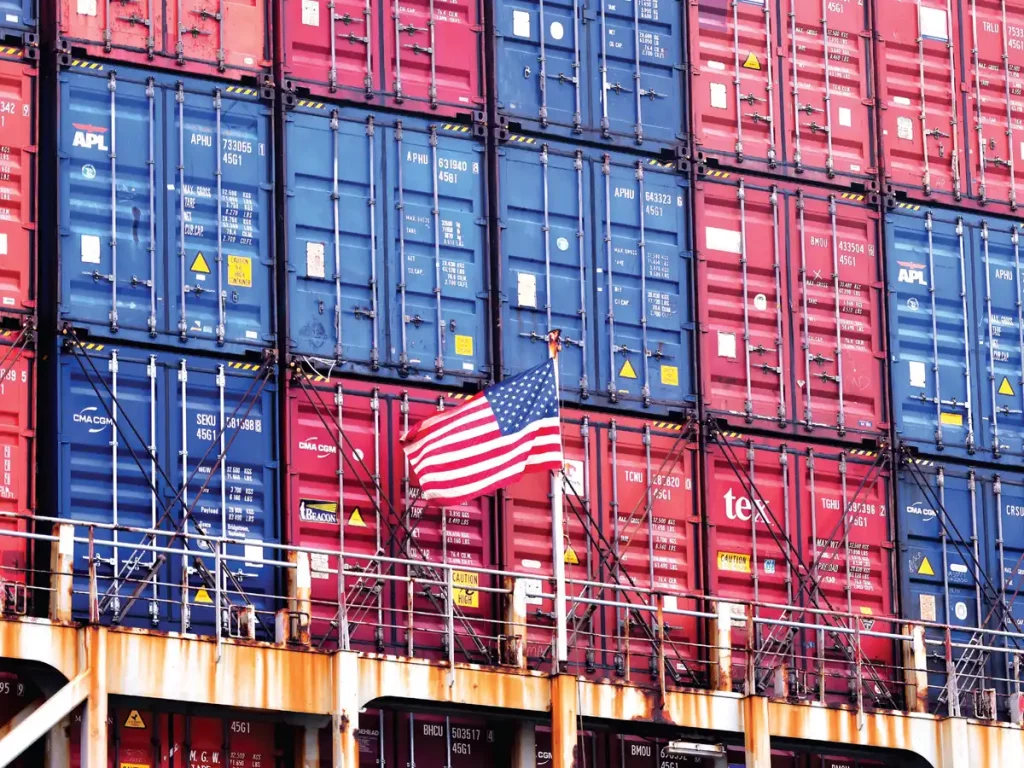 US ports are having productivity issues due to congestion, even as container volume from China is lower than usual. More cargo has been moved away from the U.S. west coast because of an increase in container vessels anchored off Savannah and Houston. Meanwhile, East and Gulf coast warehousing is a big beneficiary, where many container volumes are pushing up prices.
US ports are having productivity issues due to congestion, even as container volume from China is lower than usual. More cargo has been moved away from the U.S. west coast because of an increase in container vessels anchored off Savannah and Houston. Meanwhile, East and Gulf coast warehousing is a big beneficiary, where many container volumes are pushing up prices.
Crisis Faced by the U.S. and Canadian Ports
According to earlier CNBC reports, ocean carriers have a cut in vessel services due to the congestion at the U.S. and Canadian ports. The latest report shows that it is not receding. “It comes as no surprise ocean carriers are blanking (canceling) sailings,” said Alan Baer, CEO of OL USA. “It needs to be done to regain some sort of schedule reliability.” The outcome is that all these vessels will not be in a position for the return voyage, moving containers, loading U.S. exports, and, finally, will only load imports.
“A lot of this was the result of moving freight away from USWC arrivals due to labor disruption risk,” Baer said. According to Captain Adil Ashiq, United States Western Region executive, more complications from the East Coast ports are anticipated due to the strike at Felixstowe. “This means holiday goods could end up reaching shelves closer to the start of the holiday season — it may be prudent to seek alternative modes of transport, if possible,” Ashiq said.
Shift Of Freight
Ocean carriers, most recently MSC, have been announcing modifications to their vessel schedule due to port congestion. In July, East Coast congestion was impacting the arrival of vessels back to the Port of Shenzhen for reloading. The warehousing costs are increasing fast on the East Coast, a consequence of the increase in the vessels, Jordan Brunk, CMO of WarehouseQuote, reported. He added, “We are seeing a shift of freight traditionally held on the West Coast now moving to the Northeast and Southwest.” As a result, there is a decrease in the pricing on the West Coast.
A pullback on Manufacturing Orders and Ocean Bookings
There is a decrease in container bookings due to the pullback in manufacturing orders and all the congestion at the ports is skewing it.
“As booking levels, which indicate future import volumes, continue their descent, peak season demand on the ocean looks muted,” Mulvey said. “Softer demand on the ocean leads carriers to increase the number of blank sailings to slow the rapid decline in Trans-Pacific spot rates.” According to OrientStar Group, currently, space is open for all lanes, and more bookings with freight adjustments weekly and some daily, are being pushed by ocean carriers.
Impact Of Strike at German Ports And Felixstowe
China to West Coast Ocean freight rates is down to 6%, and China to the East Coast is down by 3%, tracked by Freightos. The strike at Felixstowe and the previous labor strife in Germany have led to massive port congestion resulting in the freight rates going up from Europe to North America and China to Europe.
It will take the first quarter of 2023 for the congestion to be eased, reported Crane. Those who have the information about the German deal state that it will take two weeks for the union to announce its final decision. The union negotiation committee has approved the deal for a retroactive pay increase of 9.4%, followed by 4.4%. There is a trade slowdown of $4.7 billion due to the current strike at Felixstowe.
“If the strike action goes for the full eight days or longer, massive delays will be seen across the U.K., with spillover effects into the E.U. as containers get diverted to other ports such as Rotterdam or Le Havre. Moreover, many U.K. and E.U. ports are already experiencing maximum capacity volumes, so their ability to handle even more may be limited,” Brazil said.
The strike will impact significant companies that use the port at Felixstowe to transport their goods. It will also harm the U.S. companies and industries that export to the U.K. If the pay demand is not met, the port disruption could last until Christmas, union Unite has warned. Sources say that if the request is approved, there will be no more strikes till March 2024.